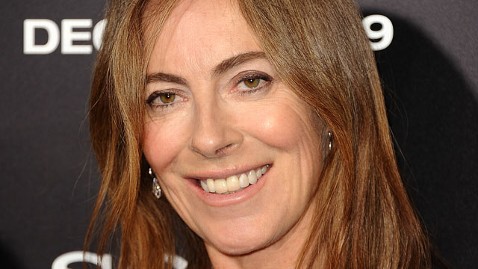Kathryn Bigelow Answers Critics on Torture

(Image Credit: Jason LaVeris/FilmMagic/Getty Images)
Director Kathryn Bigelow is once again responding to the criticism leveled at her for the depiction of torture in her Oscar-nominated film, "Zero Dark Thirty."
In a piece she wrote for the Los Angeles Times, Bigelow defended her use of the torture scenes in the film about the hunt for Osama bin Laden, saying, "Those of us who work in the arts know that depiction is not endorsement."
"Indeed, I'm very proud to be part of a Hollywood community that has made searing war films part of its cinematic tradition," she wrote. "Clearly, none of those films would have been possible if directors from other eras had shied away from depicting the harsh realities of combat."
Ed Asner, Martin Sheen and other Hollywood actors have waged an anti-Oscar campaign against "Zero Dark Thirty," to which Amy Pascal, the co-chair of Sony Pictures Entertainment, which released "Zero Dark Thirty," sharply responded, "To punish an artist's right of expression is abhorrent."
The film received an Oscar nomination, but Bigelow, 61, was surprisingly snubbed for a best director Oscar.
In her Times piece, Bigelow stated her personal belief on torture: "As a lifelong pacifist, I support all protests against the use of torture, and, quite simply, inhumane treatment of any kind."
She added, "But I do wonder if some of the sentiments alternately expressed about the film might be more appropriately directed at those who instituted and ordered these U.S. policies, as opposed to a motion picture that brings the story to the screen."
Sen. Dianne Feinstein, a California Democrat, and other lawmakers have criticized the film as misleading for suggesting that torture led to the location of bin Laden. Lawmakers asked Sony Pictures to attach a disclaimer saying the film is fictional. The film opens by declaring it's based on firsthand accounts of actual events.
"As for what I personally believe, which has been the subject of inquiries, accusations and speculation, I think Osama bin Laden was found due to ingenious detective work," Bigelow said. "Torture was, however, as we all know, employed in the early years of the hunt. That doesn't mean it was the key to finding Bin Laden. It means it is a part of the story we couldn't ignore. War, obviously, isn't pretty, and we were not interested in portraying this military action as free of moral consequences."
Bigelow's comments were her most explicit reaction to the controversy so far.
"Bin Laden wasn't defeated by superheroes zooming down from the sky; he was defeated by ordinary Americans who fought bravely even as they sometimes crossed moral lines, who labored greatly and intently, who gave all of themselves in both victory and defeat, in life and in death, for the defense of this nation," she concluded.